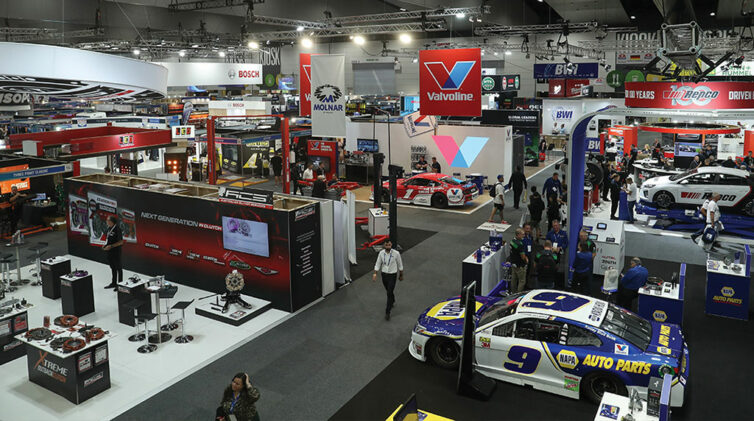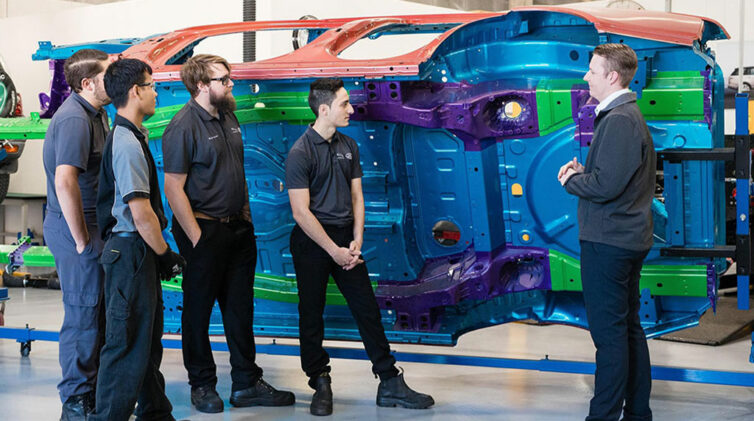
Paul Fletcher
THE federal government has decided not to proceed with the personal importation of new motor vehicles from the United Kingdom and Japan, according to the minister for urban infrastructure, Paul Fletcher.
This comes after a sometimes controversial review of the existing Motor Vehicle Standards Act conducted between 2013 and 2015, followed by robust industry consultation since February 2016 when proposed changes opening up the private importation of new vehicles were announced.
The move will be implemented as part of new legislation with the government planning to introduce the Road Vehicle Standards Bill into Parliament before the end of the year, with a view to it taking effect by 2019.
The change of heart by Canberra follows extensive industry lobbying which highlighted the cost, complexity and practicality of providing the necessary levels of consumer awareness and protection arrangements.
Those complexities included investigation of each vehicle before it was imported to Australia; ensuring consumers were aware that the manufacturer’s warranty may not apply in Australia; and establishing systems to deal with a manufacturer’s safety recall.
It would also have been necessary to ensure that subsequent purchasers of a new privately imported vehicle were aware of this fact – and the consequences such as the manufacturer’s warranty not applying.

David Blackhall
Having weighed up those issues against the modest benefits of the personal import arrangements – including price reductions estimated to be less than two per cent across the market – the government has back-pedalled and now says that the benefits do not justify the cost and complexity.
Australian Automotive Dealer Association (AADA) CEO David Blackhall has welcomed the government’s decision not to proceed.
“The AADA has been in close consultation with Minister Fletcher since the proposal to allow new car imports was first mooted,” Mr Blackhall said.
“We have sincerely appreciated the minister’s willingness to engage in productive consultation and to understand the many risks to consumers that such a plan might entail.”
The Federal Chamber of Automotive Industries (FCAI) has also welcomed the move, with FCAI chief executive, Tony Weber, describing the decision as a win both for consumers and for the industry.
“The industry has long held the view that personal imports are not in the interest of consumers, nor of the 236,000 people who are either directly or indirectly employed in the Australian motor industry,” Mr Weber said.

Tony Weber
“Australia already has one of the most competitive motor vehicle markets in the world, delivering world quality vehicles and outstanding value for the consumer.
“To allow personal imports would have exposed consumers to enormous risks, which the government’s own analysis has clearly identified.”
The new Act will also make changes affecting vehicle safety recalls by mirroring the safety recalls provisions in the Australian Consumer Law.
The new legislation will also require a secure vehicle identification marking on new vehicles with the intent that these will provide a significant deterrent to motor vehicle theft and rebirthing.
While there has been broad acceptance and welcoming of the mooted new legislation from across the car industry, not everyone is happy.
The Australian Imported Motor Vehicle Industry Association (AIMVIA) issued a statement claiming that, “the imported vehicle industry has been dealt a massive blow,” by the changes to import regulation contained within the new Bill.
AIMVIA President, Jack Sandher, was scathing in his assessment. “It will mean the decimation of our industry, there’s no other way to describe it. The association and its board has devoted hundreds of thousands of dollars and countless hours to regular meetings with politicians and departmental staff across Australia over the last four years, only to be ignored at the finish line.

“At a time when the automotive industry is already shrinking, it is ludicrous that the ‘government for small business’ is prepared to watch 142 small-to-medium enterprises go to the wall for the sake of protecting the profits of overseas vehicle manufacturers,” he said.
The AIMVIA, who represents businesses that would colloquially be know as ‘grey importers,’ estimates that proposed changes to the Specialist and Enthusiast Vehicle Scheme will reduce imported vehicle numbers by more than 50 per cent, resulting in most of the 142 registered workshops and many more ancillary businesses closing their doors.
GoAutoNews Premium understands that the importation and compliance of Japanese vans and passenger cars would be the vehicles most affected by the changes.
The government, however, claims that reforms will still provide increased consumer choice including by streamlining and improving the existing pathways for importing specialist and enthusiast vehicles.
This includes expanding the range of vehicles eligible for consideration as a specialist and enthusiast vehicle, with vehicles now to be required to meet only one of six eligibility criteria instead of meeting two out of four eligibility criteria as was previously the case.

Nissan Elgrand
Assuming that the proposed legislation actually makes it through both houses of Parliament the six eligibility criteria will be:
- Performance – a new graduated threshold formula measured from 110 kilowatts per Tonne (kW/T) in 1992, increasing by one kW/T each year after.
- Environmental Performance – an objective vehicle technology based on an alternate power source to internal combustion or a micro-car subcategory for low power (low emissions) vehicles.
- Mobility – originally manufactured or fitted from the factory with substantive specialist mobility features to assist people with disabilities.
- Rarity – total worldwide production of the vehicle ‘Make’ is less than 3000 units per year; or total worldwide production of the vehicle ‘Model’ is less than 1000 units per year; or total worldwide production of the vehicle ‘Variant’ is less than 100 vehicles per year.
- Left-hand drive vehicles imported under the rarity criterion will not require conversion to right-hand drive but will need state or territory agreement for use on their roads.
- Left-hand drive – originally manufactured as a left-hand-drive vehicle and not available as an originally manufactured right-hand-drive vehicle in another world market. These vehicles will require conversion to right-hand drive for safety reasons.
- Campervans and Motorhomes – originally manufactured as a campervan or motorhome.
The FCAI believes that on the surface while there is merit in these changes, it is keen to work through the detail with the government on elements of the revised scheme to ensure the necessary consumer protections are in place.
“The broad picture offered by the government in its statement is one which now provides legislative certainty and clarity and most importantly, better protection for Australian consumers,” Mr Weber added.

Nissan GT-R
The links below are to fact sheets on the department of infrastructure website.
https://infrastructure.gov.au/vehicles/mv_standards_act/files/Website_FAQ_updated.pdf
https://infrastructure.gov.au/vehicles/mv_standards_act/files/Overview_Brochure_updated.pdf
https://infrastructure.gov.au/vehicles/mv_standards_act/files/Info_Sheet_2_SEVS_updated.pdf
https://infrastructure.gov.au/vehicles/mv_standards_act/files/Info_Sheet_4_RAWS_updated.pdf
By Daniel Cotterill













 Read More: Related articles
Read More: Related articles

